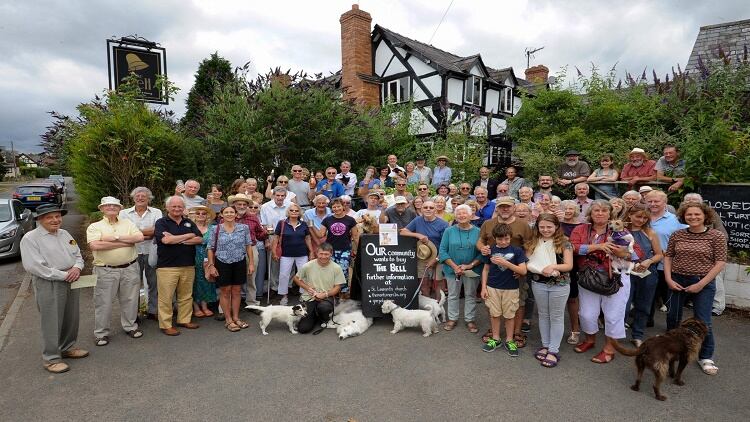The expert line-up that will drive reform of the Licensing Act 2003 will include UKHospitality CEO Kate Nicholls, British Beer & Pub Association chair Nick Mackenzie and Night-Time Industries Association CEO Michael Kill.
The Government announced the formation of the new working group to look at how to reduce barriers in the licensing system.
It will report in six weeks, with solutions to improve the licensing system, cut red tape and boost hospitality’s competitiveness.
Meanwhile, the Mayor of London will also be given new powers to review blocked licensing applications that is hoped will boost the capital’s nightlife.
UKHospitality CEO and chair of the Institute of Licensing Kate Nicholls said: “Cutting red tape and improving hospitality’s competitiveness is much-needed to unlock our sector’s potential to drive socially productive growth and create jobs.
“A new and improved licensing system that is fit for the 21st century will be a huge boost to the nation’s pubs, bars, restaurants and hotels, and I’m delighted this expert group will be leading the review and finding solutions that can unlock the high street’s potential.
Too restrictive
“It’s also very encouraging that the Government is delivering on recommendations from the London Night-Time Commission to give more powers to the mayor to review blocked licensing applications. This is an approach that can be rolled out across the country.
“We have long maintained there are aspects of the licensing system that are too restrictive and aren’t flexible enough to adapt to an ever-changing sector.
“Too often, we hear from businesses that are encountering barriers to growth at a local authority level. Not only do structural elements of the system need to change but so do approaches to licensing in particularly restrictive areas.
British Beer & Pub Association (BBPA) chair and CEO of Greene King Nick Mackenzie added: “Licensing regulations provide a clear example of how well-intentioned legislation can inhibit economic growth, with excessive restrictions often limiting premises’ ability to respond to changing circumstances and customer demand.
“I am looking forward to working with the hospitality minister as we speak to stakeholders from within the industry and beyond to understand current frustrations and limitations.
“I hope that we can address existing concerns and create a licensing system that reduces unnecessary red tape, accelerates the licensing process and unlocks opportunities for premises to drive economic growth across the UK.”
Gov must act swiftly
Night-Time Industries Association CEO Michael Kill said “A well-balanced licensing system is crucial for the long-term sustainability of the night-time economy.
“Cutting red tape and modernising our licensing framework is vital to unlocking its true potential. A 21st-century approach will empower pubs, bars, restaurants, nightclubs, and venues to thrive – creating jobs and driving economic growth.
“The night-time economy has incredible potential and reforming outdated legislation will help it flourish. We urge the Government to act swiftly on the task force’s recommendations and continue reviewing other policy areas that hinder investment, innovation, and growth in our sector.”
Meanwhile BBPA CEO Emma McClarkin added: “A review of the Licensing Act 2003 is long overdue. We are currently working with MPs to pass an amendment to permitted licensing hours at times of major national events when parliament is not sitting. But this is just one example where the current law restricts the ability of pubs to respond to consumer demand and sell beer and other drinks in a responsible manner.
“There will be many other simple changes that can be made to the act that will ease the ability to do business and drive more sales, invest and grow.
“I look forward to the quick implementation of the recommendations that the taskforce brings forward and urge the Government to repeat this exercise across a number of other policy areas where urgent reforms are needed including business rates reform, packaging reform and much needed cuts to beer duty.”
Helpful step
Suraj Desor, licensing solicitor at Poppleston Allen, also commented on the news the Government may create powers to allow the mayor to “call in” licensing decisions made by local councils in London that may negatively impact upon nightlife areas within the capital.
“On the face of it, the Government intention appears positive, seeking to steer licensing decisions towards more positive outcomes for incoming and existing operators in the hospitality sector in London and other parts of the country’s key nightlife areas," Desor said.
“This would be a helpful step to rebalance what many operators and their licensing practitioners have felt is an overly cautious, restrictive, and anti-businesses approach to licensing decision-making within London councils and many other areas across the country.
“This could be a welcome move in the right direction to help bolster and drive growth within the sector during what has been a challenging and difficult number of years for the hospitality industry both in the capital and beyond, with these businesses now also having to contend with rising wages, national insurance contributions and business rates.
“However, for now, this is all talk (albeit positive) and no formal action from the Government [has taken place]. Were such powers to materialise, how it would work in practice, the scope of such powers (would they be limited to overturning negative decision-making or could they, in theory, also apply to overturning positive licensing decisions (such as on the back of local resident concerns)?), we will have to wait and see.”





